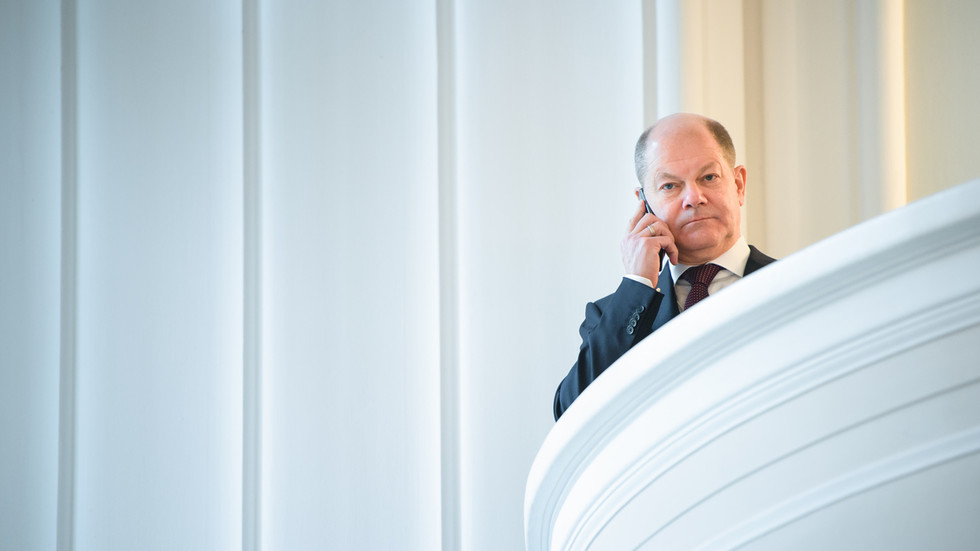On Friday, Russian President Vladimir Putin and German Chancellor Olaf Scholz engaged in their first telephone conversation in nearly two years, focusing primarily on the ongoing conflict in Ukraine. This significant dialogue comes at a time of heightened tensions and international scrutiny surrounding the war. German media reports revealed that the discussion included considerations for peace talks between Moscow and Kiev, highlighting Scholz’s ongoing calls for negotiations to be initiated by Russia. While the Kremlin confirmed that Putin would participate in an international phone call on the same day, specific details regarding the exact nature of the discussions were initially sparse.
During the call, Chancellor Scholz reportedly urged President Putin to demonstrate a willingness to negotiate with Ukraine to pave the way for a “fair and lasting peace.” Berlin’s commitment to steadfastly supporting Ukraine throughout the conflict was underscored by Scholz, who affirmed Germany’s intention to continue its assistance “as long as necessary.” This assertion of unwavering support reflects Germany’s strategic position within the European framework regarding the Ukrainian crisis, indicating a clear alignment with Western allies in opposing Russian aggression.
Scholz also emphasized the necessity for Russia to terminate the conflict and withdraw its military presence from Ukrainian territory. This sentiment reinforces the consistent position of Western leaders who have called for de-escalation and peace through diplomatic channels. Following the discussion, German officials conveyed to Russian news agency TASS that both leaders agreed to maintain open lines of communication moving forward, a positive indication that dialogue may continue in the future amidst the challenges of the conflict.
The timing of this phone call is especially crucial, as it marks the first direct dialogue between the two leaders since December 2, 2022. The nearly two-year hiatus underscores the fractured nature of relations between Germany and Russia since the onset of the Ukraine conflict in February 2022. The communication gap has raised concerns about the sustained diplomatic ties between Europe and Moscow, particularly as both sides navigate the complex geopolitical landscape shaped by the war.
Before the phone call with Putin, Chancellor Scholz had also reached out to Ukrainian President Volodymyr Zelensky, indicating his intention to follow up with Zelensky after discussing matters with Putin. This outreach demonstrates Scholz’s commitment to a coordinated response among European leaders regarding the ongoing war, as well as his understanding of the urgency of addressing Ukraine’s needs amid the protracted conflict. Brussels and Berlin have remained cautious in their diplomatic engagements with Moscow, prioritizing Ukrainian sovereignty and security above all.
As the international community continues to call for peace and stability in the region, the results of this recent conversation between Scholz and Putin will be closely monitored. The prospects for effective negotiation and de-escalation largely depend on genuine commitments from both nations, as well as the involvement of other key stakeholders in the region. However, the challenges remain steep, with divergent perspectives on territorial integrity and national sovereignty complicating the pathway to durable peace. Ultimately, the future of the Ukrainian conflict hinges not only on bilateral discussions but also on the ability of global leaders to forge a united front in advocating for conflict resolution.

